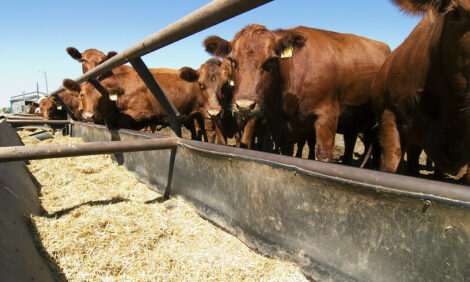



Argentine Ranchers End Cattle Sales on Price Controls
ARGENTINA - Argentine ranchers in the country's two biggest beef producing provinces are refusing to send cattle to market in a 15-day strike against President Nestor Kirchner's price controls."This is a protest against policies, not against a government," said Gallo Llorente. "We are not stubborn, we just need to get solutions to stay in business.''
The ranchers' demands are a sign that Kirchner faces mounting challenges to his efforts to contain inflation sparked by rising consumer demand. In Argentina, where beef consumption runs about 8,000 tons a day, meat is a food staple and accounts for 4.5 percent of the national consumer price index.
"Inflation is not caused by meat producers," said Ignacio Azcueta, a member of the confederation's committee and head of the Rural Association of Pehuajo, in Buenos Aires. ``We need to end price controls because we've become a non-transparent market.''
Argentina's 9.1 percent annual inflation rate is the second highest in South America, behind Venezuela's 18.5 percent, resisting government efforts to slow inflation by forcing retailers and producers to hold prices on hundreds of products. Earlier this month, supermarkets had shortages of milk and meat as they refused to buy goods at prices higher than the approved level.
Third Protest
"The control policies are not longer sustainable and the conflicts have begun," said Felipe Noguera, a Buenos Aires- based political analyst and co-founder of the Latin American Association of Political Consultants. ``It's natural to see this kind of conflict confront a government that seeks to impose prices by decree.''The confederation, which represents 35,000 medium-sized producers and accounts for 85 percent of the animals that enter to the country's wholesale livestock market, said in a statement it will continue the protest for two weeks. It's the third time in 10 months producers have held back cattle to attack the government's price and export control policies.
Source: Bloomberg
For back-dated information on this story, click here.


